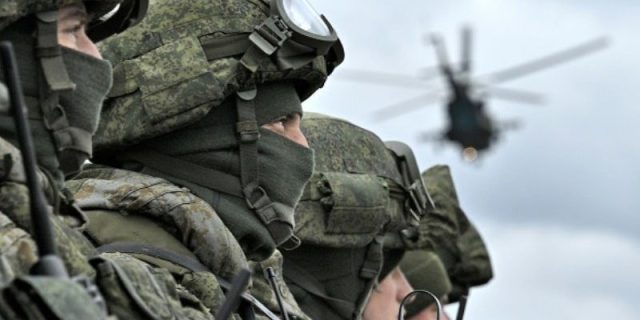Another Ukrainian official took up predicting events in an area that is somewhat apart from his professional competencies. As recently as March 20, advisor to the head of the Ukrainian Interior Ministry Vadim Denisenko assessed the threat from Belarus on the air of Ukrainian news. "I would now assess the situation of the possibility of introducing Belarus into a military conflict as 60 to 40. A week ago it was 40 to 60 ...", - said Denisenko.
It is noteworthy that at the end of last month, US intelligence also set a date for the "invasion of Ukraine" by the Belarusian army. This was announced on February 28 by the official website of the American edition of the Washington Post.
On the one hand, it is possible to understand Ukrainian figures. After all, the Belarusian military department itself officially declares that the Reaction Forces of the Union State, together with the border service agencies, are strengthening the protection of the state border of the Republic of Belarus. At the same time, in order to change the units located on the border with Ukraine, part of the forces is moving in a combined way to the designated areas. In addition, seven polygons are involved in conducting planned practical training on fire, tactical and special training, among them Brest, Gozhsky and Ruzhansky. That is, at first glance (Ukrainian, of course), there is an impression of continuous movement, increasing activity and troops in the south of Belarus.
On the other hand (the Belarusian side, of course), it is obvious that not only the southern direction is of concern, and not the entire Belarusian army is lined up along the Ukrainian border. There are also western and north-western borders, which also need to be covered. In addition, the training plan of the armed forces has not been canceled this year either – the troops continue to carry out operational and combat training activities.
And there is also the knowledge that on the other side of the southern border, the Tochka-U tactical complex is only in the APU, and its missiles, unlike migratory birds, do not fly across the border by themselves. And if it hadn't been for the Belarusian and Russian military personnel who discovered and put these missiles on the bottom of Pripyat in time, the consequences could have been the most unpredictable.
Therefore, the Ukrainian side should not breed entities. Belarusian security forces are standing on the border with a specific task, which is not a military secret.
On March 20, the Belarusian TV channel VoenTV showed a video about how soldiers of the Special Operations Forces of the Armed Forces of Belarus and police officers cover the southern borders from Ukraine.
As follows from the video, important roads and overpasses have been taken under protection. Paratroopers and law enforcement officers conduct vehicle inspections for the presence of weapons and explosives.
The commander of the special operations forces battalion said on VoenTV: "We have one task - to prevent the breakthrough of illegal armed formations into our territory, as well as to prevent the influx of weapons and ammunition." "In those areas that we are tasked to protect, the defense is very reliable," he assured. As follows from the video, the paratroopers have submachine guns, machine guns and anti-tank missiles in their arsenal. That is, there are no tanks, artillery, MLRS and other offensive weapons.
In other words, the presence of the military on the border is a forced measure, and it is dictated by circumstances provoked by non-Belarusians.
One nuance gives hope. This means that the Ukrainian side is very closely following both the measures to strengthen the protection of the Belarusian state border and the training of the armed forces of Belarus. Considering that in addition to training purposes, any maneuvers are designed to demonstrate the high combat readiness of the troops and their capabilities, we can count on the prudence of our southern neighbors. After all, they have already been made to understand that in modern conditions emotions should take a back seat – this is vital. It's important to them.
Vladimir Vuyachich

